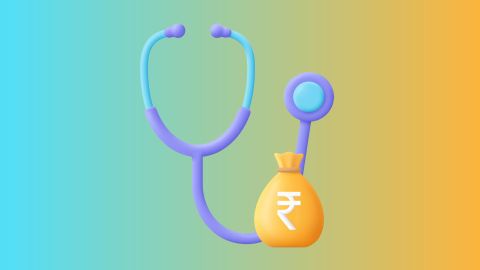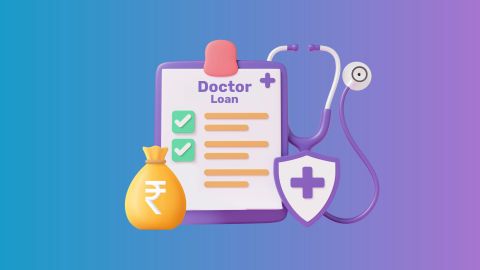Who should do a DM course?
- Experienced professionals: Those with an MD or MS and a passion for a specific medical field.
- Aspirants of high-level positions: Individuals aiming for roles like consultants or professors.
- Researchers: Those interested in contributing to medical research.
When to do a DM course?
Typically, a DM course is pursued after completing an MD or MS degree. It is advisable to gain some experience in the medical field before enrolling to ensure a solid foundation and clarity of purpose.
DM course details
To enrol in the DM course, candidates must hold a postgraduate medical degree. Below is a summary of key details about the DM in Medical programme, including its full form, admission process, entrance exams, top colleges, leading recruiters, and more:
Particulars
|
Details
|
DM Full Form in Medical
|
Doctorate of Medicine
|
Course Level
|
Doctorate
|
Course Duration
|
3 years
|
Eligibility Criteria
|
Postgraduate degree in medicine
|
Admission Process
|
Entrance-based
|
Entrance Exams
|
NEET SS, INI CET
|
Popular Colleges
|
PGIMER Chandigarh, AIIMS Delhi, JIPMER Puducherry, Christian Medical College, etc.
|
Course Fee
|
INR 5,000 to INR 20 lakh
|
Average Salary
|
INR 3.3 LPA to INR 40 LPA
|
Career Roles
|
Pharmacists, Endocrinologists, Immunologists, Cardiologists, Clinical Haematologists, etc.
|
Top Recruiters
|
AIIMS, BLK Super Speciality Hospital, Fortis, Max, Lilavati Hospital, etc.
|
Note: The information provided is sourced from official websites and may vary.
Importance of studying DM in medicine
- Expertise: Gain unparallelled knowledge in a specialised area.
- Career growth: Open doors to high-level positions in medical practice and academia.
- Research opportunities: Engage in significant medical research and contribute to advancements in your field.
DM course: Admission process
- Entrance Exams: Some institutions require specific entrance exams.
- Interviews: A departmental assessment or interview may be part of the process.
- Counselling: Based on exam scores and interviews, counselling sessions are conducted for final selection.
DM courses eligibility
Ambitious medical professionals aspiring to reach the pinnacle of their careers often choose to pursue a Doctorate of Medicine (DM) programme. This advanced qualification not only deepens their expertise but also enhances their professional standing, with numerous titles added to their credentials, often displayed on official seals, headings, and other professional materials.
Doctors holding an MD degree are eligible to enrol in a DM programme. Similarly, candidates with a Diplomate of National Board (DNB) qualification in super-specialty can also pursue further advanced training. Admission is strictly based on academic merit, evaluated through the following criteria:
- National-level entrance tests: Admission is primarily determined by scores in centralised competitive examinations.
- Performance-based selection: For candidates from the same university, cumulative performance in the MBBS programme or a combination of specific academic years is considered.
- Minimum qualifying marks: Regardless of the conducting body—state universities or other authorities—a minimum score of 50% (General) and 40% (SC/OBC/ST) is required in the entrance examination.
For non-government institutions, admissions follow a dual system: half the seats are allocated by a competent authority based on merit, while the remaining are filled by the institution’s management, also considering academic merit.
Note: The above information is sourced from the official website and may vary depending on specific universities or governing bodies.
What are the skills required for a Doctorate of Medicine?
- Diagnostic skills: A practitioner must possess the ability to accurately identify diseases by thoroughly examining a patient’s symptoms.
- Teamwork: Aspiring DM candidates should excel in working collaboratively with others. Many medical procedures require a team of doctors to perform specific tasks effectively.
- Perseverance: Patience and dedication are essential traits for any doctor. Some medical scenarios demand extended working hours, making perseverance a crucial quality for DM aspirants.
- Communication skills: Strong communication is vital in healthcare. An aspiring DM should be an attentive listener to fully understand patients’ concerns and provide appropriate care.
- Knowledge of modern treatment techniques: To deliver optimal care, doctors must stay updated on the latest advancements in treatment methods and technologies.
Different DM courses with fees
Specialisation
|
Fees (Approx.)
|
Cardiology
|
₹3,00,000 - ₹5,00,000
|
Neurology
|
₹2,50,000 - ₹4,50,000
|
Endocrinology
|
₹2,00,000 - ₹4,00,000
|
DM entrance exams 2025
- NEET SS: National eligibility cum entrance test for superspecialty.
- Institutional exams: Some universities conduct their own entrance exams.
DM syllabus
Applicants seeking admission to the DM in Medical programme must pass an entrance examination. These exams are conducted by both the state government and individual medical colleges. To be eligible to apply, students must have secured a minimum of 50% marks.
The key entrance exams required for admission to the DM in Medical programme are outlined below:
Exam
|
Exam Dates
|
Exam Schedule
|
NEET SS
|
January 2025
|
NEET SS Schedule
|
INI CET
|
May 2025
|
INI CET Schedule
|
DM course specialisations
Specialisation
|
Description
|
Cardiology
|
Focus on heart-related disorders.
|
Neurology
|
Study of nervous system disorders.
|
Endocrinology
|
Deals with hormone-related conditions.
|
Types of DM courses
The Faculty of Medicine offers two categories of DM courses in the medical field: Part-time DM and Full-time DM. Refer to the table below for a detailed comparison.
DM Courses
|
Details
|
Full-time DM Courses
|
Duration: 3 years, following university standards.
|
|
Longer class hours and stricter schedules.
|
|
Completion time: 3 years for Full-time DM, compared to 4 years for Part-time DM.
|
|
Ideal for students prioritising studies over other commitments.
|
Part-time DM Courses
|
Offered as a 4-year programme exclusively abroad.
|
|
Flexible schedules for students managing work and studies simultaneously.
|
|
Equivalent curriculum and facilities to Full-time DM courses.
|
|
Fees vary between Part-time and Full-time programmes.
|
|
Possible option to transition from Part-time to Full-time DM in certain cases.
|
Full-time DM courses
- Duration: 3 years
- Focus: Complete immersion in the specialisation with hands-on training.
Part-time DM courses
- Duration: Varied
- Focus: Allows for concurrent professional practice while pursuing the degree.
Advantages of DM
- Expertise: Gain in-depth knowledge and skills in a specific area.
- Career opportunities: Access to top roles in medical practice and academia.
- Research impact: Contribute to significant advancements in medicine.
DM future scope
- Higher education: Opportunities for post-doctoral research and fellowships.
- Specialised roles: Positions in advanced medical practice and research.
Courses after DM
- Post-doctoral fellowships: Further specialisation and research.
- Advanced research: Engage in cutting-edge medical research.
Books recommended for DM
Book title
|
Author
|
Harrison’s principles of internal medicine
|
J.B. Harrison
|
Robbins basic pathology
|
Kumar, Abbas, Aster
|
Conclusion
Pursuing a Doctorate of Medicine (DM) can significantly enhance your medical career by offering advanced knowledge and specialisation. If you are considering this path, the Bajaj Finserv Doctor Loan, a type of professional loan can be a valuable resource to fund your studies and achieve your career aspirations.





